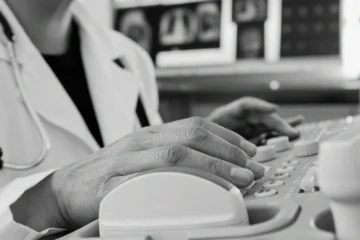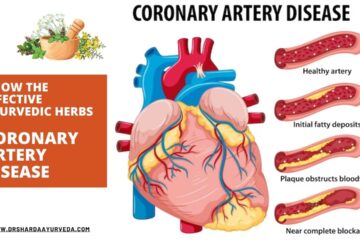The issue of driving under the influence of alcohol persists as a significant public health and safety challenge globally. Despite rigorous enforcement of laws and extensive educational campaigns aimed at curbing this dangerous behavior, drunk driving continues to result in substantial human, economic, and social costs.
That said, this article will delve into the consequences of drunk driving, aiming to provide a comprehensive understanding of its far-reaching effects. The goal is not only to inform but also to instigate change, urging individuals to reconsider their choices and advocate for safer, more responsible behaviors.
Legal Consequences
Drunk driving is a criminal offense in many jurisdictions around the world, and the legal consequences can be severe and long-lasting. Here’s a closer look at the potential legal repercussions faced by those caught driving under the influence (DUI):
- Arrest And Detention
The immediate consequence of being suspected of drunk driving is typically an arrest and detention. Detainees may be held in custody until they can appear before a court or until bail is arranged. This initial step serves both as a punitive measure and a deterrent, highlighting the seriousness of drunk driving.
In such situations, seeking the assistance of a criminal offence lawyer becomes crucial for navigating the legal complexities and ensuring the rights of the detained individual are fully protected.
- Fines And Penalties
Conviction for DUI or driving while intoxicated (DWI) often results in the imposition of hefty fines. These fines are not merely symbolic; they are designed to inflict a financial burden on the offender, serving as a stark reminder of the consequences of their actions.
In some cases, the amount can escalate into thousands of dollars, significantly impacting the individual’s financial situation. The severity of the fines typically depends on the circumstances of the offence, such as the driver’s blood alcohol content (BAC) at the time of arrest and whether it was a first or subsequent offence.
- Suspension Or Revocation Of Driver’s License
One of the most common legal repercussions is the suspension or revocation of the driver’s license. This penalty directly addresses the individual’s ability to operate a vehicle, thereby removing the immediate risk they pose to themselves and others.
The duration of the suspension or revocation can vary widely, from a few months to indefinitely, depending on the severity of the offence and the laws of the jurisdiction. For many, the loss of driving privileges can significantly affect their daily lives, including their ability to work and maintain personal responsibilities.
- Criminal Record
A DUI or DWI conviction usually results in a criminal record, which can have far-reaching implications for the offender’s future. A criminal record can make it challenging to find employment, as many employers perform background checks.
Furthermore, it can also restrict international travel, as some countries have strict entry requirements regarding criminal history. Also, a criminal record can affect eligibility for certain professional licenses and certifications, potentially derailing career paths.
- Mandatory Education And Treatment Programs
Generally, individuals convicted of drunk driving may be required to participate in alcohol education or treatment programs. These programs are designed to address the underlying issues that led to the offence, with the aim of preventing future incidents.
Participation is often mandatory, and the offender usually bears the cost. These programs can include alcohol education classes, substance abuse treatment, and counselling and maybe a condition for reinstating driving privileges.

Physical And Health Risks
The physical and health risks associated with DUI are substantial and multifaceted. Here is a more detailed exploration of these risks:
- Injuries And Fatalities
Drunk driving dramatically increases the likelihood of accidents, which frequently result in serious injuries or fatalities. These outcomes are not limited to the impaired driver but extend to passengers, other vehicle occupants, pedestrians, and cyclists.
The nature of injuries can range from minor cuts and bruises to more severe outcomes such as fractures, internal injuries, and life-threatening conditions. Fatalities are a tragic but common consequence of drunk driving incidents, underscoring the grave risk that alcohol-impaired drivers pose to themselves and others.
- Long-term Health Issues
For survivors of accidents caused by drunk driving, the journey may just begin with the immediate aftermath of the crash. Many individuals face long-term health challenges because of their injuries. These can include:
- Physical Disabilities: Serious accidents may result in injuries that lead to permanent disabilities, such as loss of limb function, paralysis, or chronic pain. These disabilities can drastically alter the course of a victim’s life, impacting their ability to work, engage in previous activities, or even perform everyday tasks.
- Traumatic Brain Injuries (TBI): Head injuries are common in vehicle accidents, and those involving alcohol are no exception. TBIs can range from mild concussions to severe brain damage, affecting cognitive functions, memory, mood, and behaviour.
- Psychological Disorders: The psychological impact of being involved in a drunk driving accident can be profound. Victims and even witnesses may develop mental health conditions such as post-traumatic stress disorder (PTSD), anxiety, depression, and phobias related to driving or vehicles.
Socio-Economic Impacts
The repercussions of drunk driving extend beyond the individuals directly involved in an accident and have broader socio-economic impacts, including the following:
- Healthcare Costs
The treatment of injuries sustained in such accidents encompasses immediate emergency care, possible surgeries, long-term rehabilitation, and sometimes lifelong medical support for severe cases. These treatments entail substantial costs, including hospital stays, medical procedures, medications, and physical therapy, among others.
- Economic Loss
Individuals who are injured may require significant time off work for recovery, leading to lost wages and reduced productivity. In severe cases, permanent disabilities resulting from accidents may prevent victims from returning to their previous employment, thereby affecting their lifetime earning potential.
Conclusion
Let this article serve as both a reminder of the consequences of drunk driving and a call to action. Through collective effort, awareness, and empathy, society can confront this issue head-on, creating a legacy of safety and responsibility that protects current and future generations.



